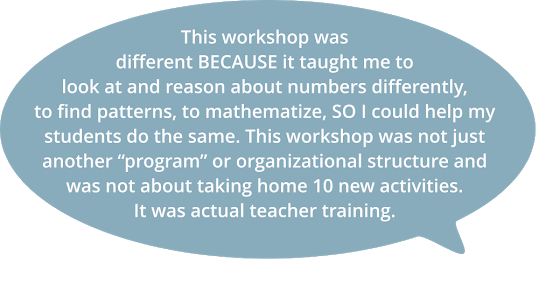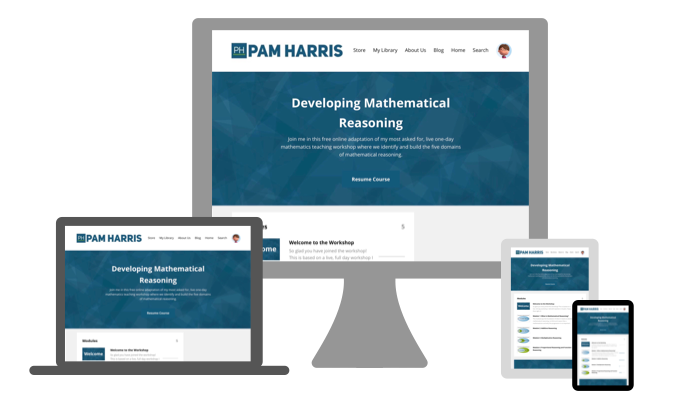Math teachers, are you frustrated . . .
✔ by unrealistic expectations of teaching students who seem so unprepared?
✔ by new methods and models you're expected to teach?
✔ that your students should be more successful since you are putting in so much effort?
Find out the "why" behind the shifts in math education.
Who is this Workshop for?

If you teach because you want to help your students grow and really reach their potential, I absolutely recommend Pam's workshops. After just two workshops, I have a whole new outlook on helping my students understand and APPRECIATE math! I am really excited to implement the strategies we discussed in my classes in the future.
I have learned a WHOLE NEW WAY TO TEACH!! I will definitely be implementing Problem Strings into my teaching next year.
Laura Douglas, Birdville High School

If you have even one student in your class that struggles with math, then take a Pam Harris workshop.
My biggest takeaway from the workshop is learning about giving students that "ah-ha" moment or glimmer, when they can see and realize the connections they are making when doing a Problem String.
Christopher Peterson, West High School, CA
Average from 518 teachers!
This is a K-12 entry level workshop
Which in no way means it's only for new math teachers!
Rather, this workshop introduces teachers, principals, skeptical parents or colleagues, anyone and everyone to the enabling and freeing knowledge that math is Figure-Out-Able.
Join me and we'll discover:
- how to reach all of your students
- what it means to engage in the work of a mathematician
- the difference between solving a problem with relationships and solving using rote-memorized steps
- how to develop mathematical reasoning in all grade bands
The workshop is 4 modules of content, and participants have access for 6 weeks.
$249 Value—Free!
From Participants of the Live Workshop

Take the Workshop on Any Device



